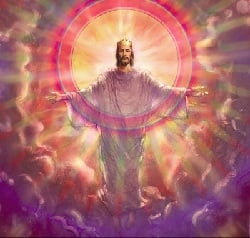Tuesday: Two Views of the Messiah
Since ancient times, readers of the Old Testament have noticed a variety of perspectives in the prophecies pointing toward the Messiah. Most Jews and early Christians identified two major strands in the Messianic prophecies.
On the one hand, there were texts that pointed toward a royal Messiah: a conquering king who would bring justice to the people and extend Israel’s rule to the ends of the earth. On the other hand, there were texts that suggested the Messiah would be a suffering servant, humiliated and rejected. The mistake that many made was in not understanding that all these texts were referring to the same person-to different aspects of His work at different times.
Read Jeremiah 23:1-6, Isaiah 9:1-7, 53:1-6, Zechariah 9:9. List the characteristics of the future deliverer that you find in these texts. What kind of “conflicting” images appear here?
These texts were puzzling in advance of the Messiah’s coming. On the one hand, the royal messianic texts usually contained no hint of suffering or humiliation. On the other hand, the Suffering Servant texts usually described the Messiah as having little power or worldly authority. One way that the Jews of Jesus’ day resolved this problem was to see the Suffering Servant as a symbol of the whole nation and its sufferings in the course of exile and occupation. By removing these texts from the messianic equation, many Jews expected the royal or conquering Messiah. This King, like David, would throw off the occupiers and restore Israel’s place among the nations.
Of course, a major problem with removing the Suffering Servant texts from the equation is that there are, indeed, significant Old Testament texts that blend the two major characteristics of the Messiah. They describe the same person. What is less clear at first glance is whether those characteristics occur at the same time or one after the other.
As shown in Acts 17:2, 3, Paul walked the Jews of Thessalonica through these Messianic Old Testament texts and together explored their significance.
In ancient times, the Jews were confused about the first coming of the Messiah. Today, we find much confusion about the Second Coming, as well. What should this tell us about the need for truly seeking to understand Bible truth? Why can false doctrine be so problematic?


We are fortunate to be living in the time when Jesus will be coming back, not as a suffering servant, but as King of kings and Lord of lords, and thus fulfill all the prophecies.
Jews were having ‘torah’, but why did they not understand the plan of salvation as Messiah was surposed to die and then come as a king?
If you had lived back then and read Jeremiah 23:1-6 and Isaiah 9:1-7, what would you have expected of the Messiah?
It is natural for us to believe those things that suit us and reject those that do not. The Jews wanted a Messiah who would set up an earthly kingdom and give them status not a Messiah who would be ridiculed, scorned, mocked, beaten and killed in the most inhumane manner.
How do we compare the Messiah with our district pastor who is human and prone to sinning?
There is no comparison.
The pastor is supposed to be a follower of Jesus, just like you and I. He just functions in a different role in the church. To him has been given the role of the oversight of the local flock of Christ.
One wonders since the Jews easily got it wrong regarding the suffering aspects of the Messianic prophecies although most of them were very versed in the scriptures at the time, could it be that we may also be wrong somewhere in some of the prophecies concerning signs of the coming of the Messiah? If this could be a possibility then which one could we be wrong in? Is it about the mark of the beast? Is it in our concept of the law vs Grace? May the Holy Spirit assist us in our study of the Scriptures not to fall into the same dilemma of the Jews.
Can we make similar mistakes today?
How about expecting God to bless us for obedience and then being disappointed when the expected blessings don’t come?
After all, the Bible promises blessings. Yet it also tells us that the righteous will suffer persecution, and in the very call to follow Him Jesus talks about cross-bearing — which doesn’t sound much like the kind of blessing we’re looking for. A cross is an instrument of death. (See Luke 9:23 “Then He said to them all, ‘If anyone desires to come after Me, let him deny himself, and take up his cross daily, and follow Me.'”)
The Kingdom of God has very different values than the values of the world, and it seems to me that we are just as likely to misunderstand the Kingdom of Heaven as the Jews of Christ’s time were.
What do you think?
There is a scripture that I believe we should be very mindful of.
Yes, I believe that we may very well be misinterpreting some prophesies and might even misunderstand some aspects of the character of God. It has happened all through history. Why should we feel as though we are the exception to the rule? Perhaps we need some humility when it comes to things like this. Maybe what Job said to his friends in a rather sarcastic way could well apply to us, “No doubt you are the people, And wisdom will die with you!” (Job 12:2 NKJV).